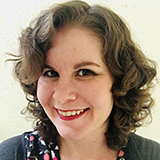Several months ago, I wrote about suddenly finding myself on the back benches of the national effort, as a shielding acute NHS worker. The response was heartening, both from other people adapting to new roles due to their health, and from colleagues who were carrying on, on the wards.
So, how have I got on?
In honesty, it’s been mixed. Delivering remote clinics has been an exercise in problem solving, and has enabled me to learn a great deal about a specialty outside my usual comfort zone, alongside making me feel that I have contributed to the national effort. I’ve accessed a range of opportunities, some of which have happened, and some of which have fallen by the wayside. I’ve learned how to juggle multiple competing tasks, and also, occasionally, how to say “no.” These aspects have been more positive than I had envisaged on the day I drove home after my last shift, wondering how on earth I could be useful in the pandemic response.
There have also been challenges. Hospital medicine is a social career, filled with encounters with large teams and corridor conversations, before the patients are even approached. I miss the camaraderie, and having someone to bounce an idea off between tasks or over lunch. When I return, my workplace will have also changed significantly in ways that are hard to track remotely. Most trainees know all too well that the challenge of frequent rotations lies not in the clinical work, but in the non-technical aspects involving local routines, and paperwork that is not always intuitive. I am aware that it will take some time to adapt, and that stepping back into the building may be a little bewildering.
Analysing the early data concerning covid-19 risk has also been confronting. When I looked at the earliest data concerning mortality among patients sharing my medical history, I thought of who those forest plots represented, and how some of them might have sat in the chair next to me in the chemotherapy unit. The new and changing information has been difficult to weigh; how do I balance my wish to return to work, against my risk of contributing to some bleak statistics? One cannot stay inside forever, but fear is a powerful thing, and while knowledge is power, it also takes a while to be peer reviewed and published. Like many remote NHS workers, my emotions around returning to on-site work vary between yearning, and anxious uncertainty. How to assess and stratify risk remains a significant source of worry, not only for clinical workers starting to wonder how to reintegrate into our teams, but also for the clinicians who care for us, and there are no easy answers.
This recent period has also forced me to acknowledge that while over the last year I may have gone back to full time shift work, become a regular runner, and regrown some hair, I still remain vulnerable. Much of the early period of my recovery following intensive chemotherapy involved striving to grasp back the rose-tinted normality that I had before my diagnosis. It transpires that the later period involves slowly accepting that this is unachievable, and trying to find some peace within this. I have often reflected on my evolution as a clinician throughout my training, as I gain knowledge, insights, and skills, but never on how I might evolve as a patient, as I continue to settle into a state of changed health. Grant me the serenity, as they say, to accept the things I cannot change, particularly as they keep on changing. It’s a work in progress, and makes me wonder whether the term “patient” holds truth, aspiration, or indeed irony.
However, throughout all of this, I have been reminded of the strange privilege my job infers, regardless of my proximity to the hospital walls. I have been trusted with so many stories, and most of them have not been all that related to the medical issue I am checking in on, but to life and worries under lockdown, or just life and worries in general. I sometimes wonder if the biggest benefit from these clinical calls are not the advice I give, or the tests I arrange, but the chance they provide for my patients to speak freely when normal life has been so severely restricted.
Samuel Shem famously wrote that “the patient is the one with the disease.” On days when I particularly miss my team, the hustle and bustle of the wards, and the feeling of kneeling down at the side of a hospital bed, I believe that I have also benefited from these moments of connection. The fleeting ability to step back into a role that I miss, where I can provide a safe ear, and focus on the experience and needs of another has helped me maintain perspective. Over this period, I have learned a lot about performing remote consultations, but also about isolation, and what happens when the world you live in seems to shrink. As a person with stable finances, in a comfortable home, with deserted country lanes where I can safely exercise, I have been unexpectedly well equipped for shielding, yet at times in spite of this it has still been hugely difficult. These conversations make me both thankful, but also committed to working out how I can better understand and support my more isolated patients both now, and in the future. Just over a year out from the end of my own cancer treatment, I also understand more about how health perceptions and goalposts can continually shift, pandemic or not, and how much of a challenge this can also infer.
 Charlotte Squires is a medical registrar at the Borders General Hospital in Melrose, Scotland, and will be commencing Geriatric Medicine training in August.
Charlotte Squires is a medical registrar at the Borders General Hospital in Melrose, Scotland, and will be commencing Geriatric Medicine training in August.
Competing interests: None declared.
